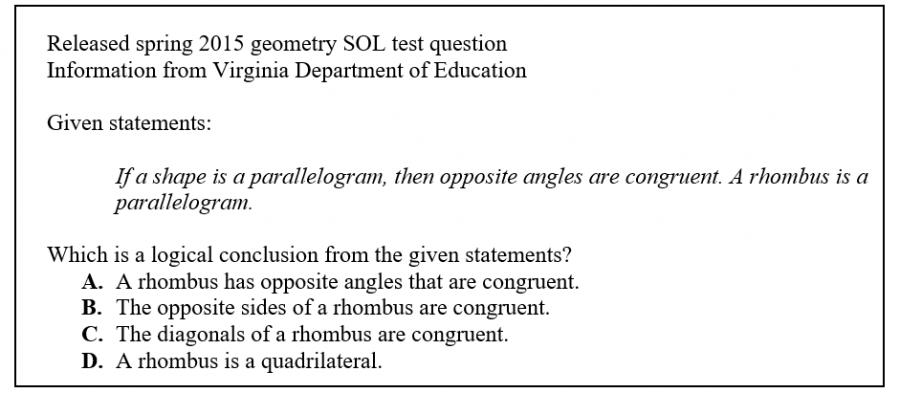Students prepare for SOLs with new beneficial techniques
January 31, 2017
Students have a responsibility to be ready to take SOLs either during the middle of the year for retakes or towards the end. Taking tests such as the SOL can be easier if a student is properly prepared.
Many students have taken SOL fall retakes over the course of eight days with 228 SOL exams given.
“I would say I probably see English writing, geometry and Earth science SOLs as more difficult for students because I have the most students retake these SOL exams,” said school improvement specialist Dorothy Neal.
There are also circumstances that require Fall SOLs that aren’t retakes.
“This is my first year in public school and I never had to take SOLs in private school, so I had to take certain ones to get the credit,” said Junior Sam Libasci.
There are ways to prepare for SOLs, so that these don’t have to be as difficult for students.
English teacher Elycia Atkinson said that learning the content of the courses throughout classes and becoming familiar with the test format is the best way to be prepared.
Research has shown that cramming information in the night before is not beneficial to a student.
AP Environmental teacher Elizabeth Badach said that it is best to focus on what is being taught at the time of the unit, so it does not have to be relearned later.
“If you’re making a real effort, you will only be reviewing at the end,” said Badach.
According to Big Ideas, a blog of The State University of New York, teens are less likely to retain the information they are studying while texting, listening to music, or watching TV.
It is also helpful to take practice tests. According to the same website, practice testing through flash cards or doing practice questions are highly effective for studying.
“We offer testing throughout the year and what I really do is ask teachers to work with the students on those content areas,” said Neal.
It is common that when studying, students sit down for hours at a time to try to absorb as much information as they can.
“This can actually be counterproductive,” according to Top Universities. “For long-term retention of knowledge, taking breaks really helps.”
Other, more long-term action that can be taken to make a person a better test taker, more energized, and more prepared for SOLs are making healthier choices. Getting healthier can include both exercise and eating better foods.
According to Big Ideas, “Just 20 minutes of cardio can improve your memory.”


